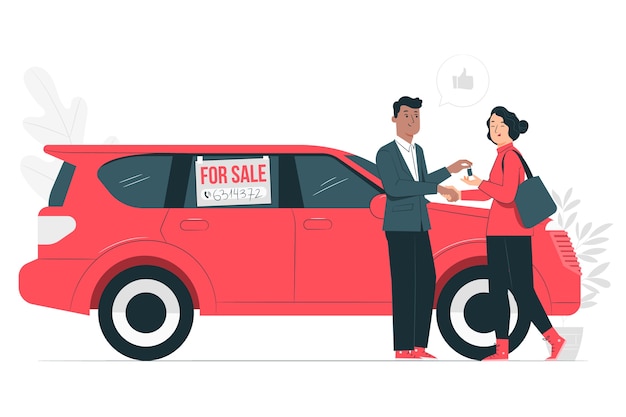
Choosing a car is a substantial decision that confronts many Americans. Depending on your location, owning a car might be crucial for commuting if alternative transportation options are scarce. The decision between leasing or buying a car is a recurring debate.
Ideally, purchasing a car outright would save you from the burden of extra monthly installments, but only a limited number of people can afford this. Therefore, we are left with two options: leasing versus financing. Both entail monthly payments, so which is the superior choice?
THE KEY DIFFERENCES
A car lease is akin to renting it. The agreement spans a fixed term (usually 2-3 years), during which you make regular monthly payments with a fixed interest rate. Once the lease ends, you trade the car in for another lease or purchase a new one.
On the other hand, financing a car requires a down payment and a loan for the remaining balance. The agreed interest rate depends on your credit score and a specific period is allocated to repay the loan. After the repayment is completed, the car is entirely yours, whether to continue driving, sell, or junk when its lifespan is through. You could also explore refinancing your car loan if beneficial terms emerge.
ADVANTAGES OF LEASING
Lease payments are usually lower than the monthly installments for a financed car. This is particularly helpful if you’re on a strict budget. In addition, most leased cars are under warranty, shielding you from major out-of-pocket repair expenses. Also ensure to track routine maintenance and validate your warranty periodically.
Furthermore, less upfront cash is needed when leasing a car. Some deals don’t demand a down payment, making it cost-effective to lease a newer, top-quality car with affordable monthly payments.
ADVANTAGES OF FINANCING A CAR
Purchasing a car outright results in full ownership without the hassle of extra costs, fewer repair and maintenance concerns if it’s under warranty and flexibility with auto insurance options compared to leasing or auto loans.
While you’re repaying the loan, treat the car as your own. Drive it at your discretion and style it as you wish, provided you maintain regular repayments. Failure to pay on time can result in late fees, negative credit impact, or car repossession.
Also, every payment made when financing a car brings you closer to outright ownership. If well-maintained, this car could fetch a profit at resale.
THE DOWNSIDES OF LEASING A CAR
Leasing contracts confine you to a mileage limit, which restricts your freedom to drive at your will. Overstepping this limit will attract a penalty. Also, upon return, the car should be in excellent condition to avoid additional fees.
Lastly, terminating your lease prematurely could lead to a substantial penalty or obligation to cover the remaining payments. Lease agreements may give way for lower initial costs, but failing to meet your commitment can result in steep fees.
PITFALLS OF FINANCING A CAR
Drawbacks of financing may include extended loan durations, up to seven years in some cases, forcing high monthly payments to ensure affordability. As cars depreciate over time, you might end up owing more than the car’s worth, especially if you opt to sell or trade it in.
Moreover, long-term ownership means covering repair and maintenance costs once the warranty expires. Combined with monthly payments, the overall cost may rise significantly in the long run.
Another consideration is the down payment amount when financing a car. If you can’t afford a substantial upfront amount or a trade-in, securing an affordable loan or decent car might be challenging.
CONSIDER YOUR NEEDS
While both options present their positives and negatives, the ultimate decision hinges on your needs and aspiration.
If you’re after the novelty and sophistication of a new car and don’t anticipate excessive mileage, leasing might be your best bet. However, at the end of your lease, the car must be returned and you’re left with nothing to show for your investment.
Yet if you are looking for long-term ownership, value autonomy, and envisage substantial use of your car, financing is a more suitable route. This contribution toward ownership is an aspect absent in leasing.
Despite the perceived benefits, I personally wouldn’t pursue a car lease. The allure of a shiny new car doesn’t appeal to me, and I cherish the independence and flexibility that car ownership offers. Moreover, the risks associated with car leasing outweigh the benefits, especially the potential for unexpected penalties and fees.
Which option is more appealing to you? Have you ever tried to lease or finance a car or are you considering it now?


